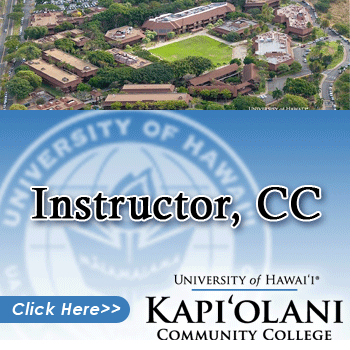Interpreter, Sign Language
Job Description
Full job description
Summary: The Interpreter's primary function is to bridge communication gaps between individuals using English and individuals using American Sign Language or a form of Manually Coded English. Transliterating is working between spoken English and some system used to represent English visually. This highly complicated and demanding task of sign language interpretation/transliteration or cued speech transliteration facilitates communication that otherwise could not exist between students who are deaf or hard of hearing and various personnel involved in the student's education.
proficient in sign language with an EIPA score of 3.0 or better
general knowledge of special education and school routines
ability to work as member of a team
Essential Duties: (These duties represent a sample and may vary by position.)
- Interprets accurately, manually, from the source language (written or spoken English) a message to a student who is deaf or hard of hearing using the communication method most readily understood by the student, i.e.: American Sign Language, Signed Exact English, cued speech, Conceptual Accurate Signed English, or pidgin sign.
- Presents the contents of the speaker's message completely and accurately.
- Produces clear and readable signs.
- Conveys moods and additional information utilizing appropriate non-manual markers.
- Utilizes the signing space.
- Selects conceptually accurate sign vocabulary.
- Facilitates full participation in school events by students who are deaf or hard of hearing.
- Assesses the student who is deaf or hard of hearing's language and signing style to determine preference of mode.
- Manages environmental factors depending on the specific circumstances such as lighting, seating arrangement, and auditory needs.
- Vocalizes all information given including what might be pantomimed, gestured or conveyed, using non-manual marker.
- Utilizes grade level vocabulary appropriate to the signer.
- Lip-reads and speech reads, articulates using a clear voice with appropriate volume to be heard in the setting and shows feeling and intent of the speaker by using intonation, pitch and voice modulation.
- Formulates grammatically correct English sentences from the source language.
- Voice interprets accurately from the source language of American Sign Language or Manually Coded English to a hearing person in the target language of spoken English.
- Mouths the message of the speaker using complete and accurate English grammar.
- Interprets English idioms so that interpretation is conceptually accurate.
- Signs and cues smoothly, moves head, eyes and shoulders appropriately during dialogues.
- Fingerspells accurately and at an appropriate rate.
- Pantomimes or gestures when appropriate.
- Expresses facially and appropriately different types of questions.
- Enhances interpretation through facial expression appropriate to the mood, spirit and intent of the speaker.
- Employs specific technical sign vocabulary appropriate to the subject area and the grade level of the student.
- Prioritizes simultaneous auditory input occurring in the classroom; identifies courses of action for specific situations and follows the National Registry of Interpreters for the Deaf Code of Ethics.
- Wears specific clothing contrasting in skin tone which is conducive for student's visual reception of signed messages.
- Applies knowledge of federal, state and local laws pertaining to students who are deaf or hard of hearing and interpreters regarding child abuse or neglect.
- Identifies how hearing loss affects language development.
- Assists teachers in identifying techniques and devices to help students who are deaf or hard of hearing.
- Identifies types of support services provided in public school settings; refers students and staff to appropriate support services.
- Provides information about services, programs and agencies in the community who serve students who are deaf or hard of hearing.
- Participates as a member of the Individual Education Program (IEP) process.
- Understands and uses standard spoken English fluently.
- Comprehends reading materials commonly found in K-12 educational programs.
- Writes coherently using correct spelling, grammar, punctuation and appropriate vocabulary.
- Interprets/transliterates accurately basic principles and common terms used in the physical sciences including mathematics, physics, biology, chemistry, computer science and other such courses commonly found in the K-12 curriculum.
- Assists in conducting in-service training
- Tutors.
- Attends community sponsored workshops, conferences and training sessions in pursuit of professional development and networking.
*Please mention you saw this ad on NativeAmericansInHigherEducation.*





